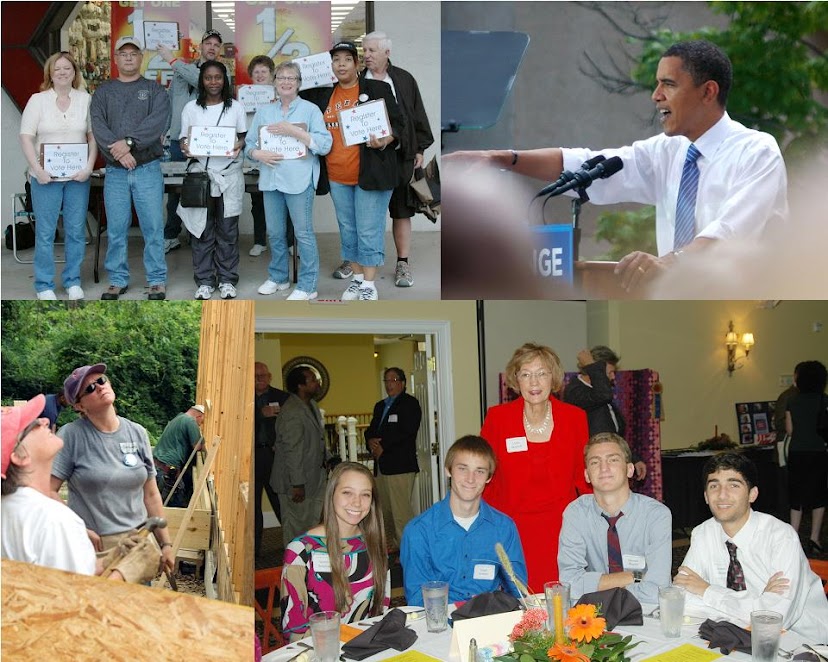From The Pilot: November 24, 2009
Thanksgiving is upon us, a time when many media outlets tend to focus on the poor who can't afford a feast to celebrate the holiday.
There are more families than ever in that boat, living in poverty or teetering on its edge, just one illness or missed mortgage payment away.
And that's true all year long, not just during the holiday season. The U.S. Department of Agriculture recently released its food insecurity report, which found that almost 50 million people couldn't afford enough to eat at some point during the last year. Almost one in four children went hungry. That's the highest number since the federal government began issuing the report.
Almost 50,000 families in North Carolina went without food, a startling number, though one that is consistent with other indicators of the suffering in the state, as families struggle to access health care and transportation, and find a safe, affordable place to live.
More than 10,000 homes in the state have no heat as winter approaches. Almost 20,000 don't have indoor plumbing. More than 1.5 million people have no health insurance. More than 40,000 children are now languishing on the waiting list for a child care subsidy, making it next to impossible for their mothers to take a low-wage job or go back to school to begin the slow road out of poverty. And if all that is not enough, poor families are still paying more in state and local taxes as a percentage of their incomes than the richest one percent of North Carolinians.
A report released by the Institute on Taxation & Economic Policy finds that the poorest 20 percent of taxpayers, who earn less than $17,000 a year, pay 9.5 percent of their income in state and local taxes.
The wealthiest 1 percent, who earn more than $398,000 a year, pay 8.1 percent of their income in state and local taxes. When you include the offset from the federal deduction of state taxes, the percentage for the wealthiest 1 percent drops to 6.8 percent.
The report analyzes the tax systems in all 50 states and North Carolina's is not among the most regressive, though that is little consolation to poor families here struggling to meet their basic needs while paying more of their income in taxes than their wealthy counterparts.
Just over 500,000 families in North Carolina earn less than $15,000 a year, according to the American Community Surveys of the U.S Census Bureau.
That puts them squarely in the poorest fifth of the population that pays far more in taxes than the wealthiest 1 percent. Close to a million households earn less than $25,000.
Every time lawmakers raise the sales tax as they did this summer, they make the system more regressive, especially considering that North Carolina does not tax many services, most of which are used by folks at the upper end of the economic ladder.
That's what makes tax reform so important, though the corporate lobbyists who encourage lawmakers to raise the sales tax are the same special interests fighting efforts to broaden it, not to mention their opposition to closing tax loopholes enjoyed by multistate corporations.
Times are as tough this Thanksgiving as they have been in generation, and it's not just the economic slowdown that's to blame. It's the willingness of many state leaders to largely ignore the plight of the poor and their unwillingness to change a revenue system that makes an escape from their despair even more difficult.
Chris Fitzsimon is executive director of N.C. Policy Watch. Contact him at chris@ncpolicywatch.com.

No comments:
Post a Comment